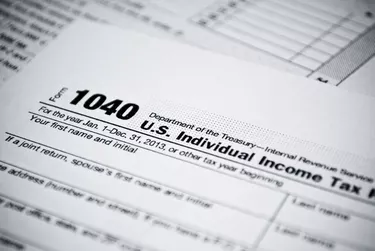
Claimants, both individuals and businesses, may wonder how their insurance settlements will impact their tax liabilities. You may want to consult a tax professional to determine the implications of your particular settlement, but most property insurance settlements are not taxable income. Even when a settlement becomes taxable, you can often manage it in such a way to minimize or eliminate any tax burden to you or your business.
Indemnity
Video of the Day
Property insurance is built around the principle of indemnity, or the process of returning an insured piece of property to its pre-loss condition. If the property is destroyed beyond repair, insurance pays the value of the lost item. Because the Internal Revenue Service does not have any interest in your money unless you have a financial gain, indemnity usually keeps the tax man away. When you repair your vehicle, for example, you do not gain from the claim; rather, you simply return to where you were before the loss. In this way, most property insurance proceeds are not taxable.
Video of the Day
Cost Basis
You can, however, have taxable income when the insurance proceeds exceed your cost basis in the damaged item. This means you receive more from the insurer than you initially spent on the item. For example, if you purchased your home for $150,000 and you then receive a $200,000 settlement from your insurance company because the value of your home has increased, you potentially have $50,000 of taxable income, because this is the amount that exceeds your initial investment.
Depreciation
With business property, you have the additional complication of annual depreciation. Because businesses use their property in the course of normal operations, they are allowed to depreciate, or claim a dollar loss against, each item each year. A $20,000 vehicle might depreciate by $2,000 annually. Therefore, after three years, your cost basis in the vehicle has decreased to $14,000 because you deducted the balance from your taxes. If you then receive a settlement from your insurer that exceeds $14,000, the balance would be considered taxable income.
Reinvesting the Gain
There are ways to avoid paying taxes on your proceeds, even if you realize a financial gain. The IRS generally allows you to reinvest the gain back into the damaged item or into similar items for the same business. For example, if you realize a gain from a homeowner's insurance claim, you may be able to invest the gain back into your home to avoid paying taxes on it. A business that sees a gain from a vehicle loss might buy another vehicle with the excess money to avoid taxation. As with all tax issues, consult a tax professional to determine the financial consequences of your actions.